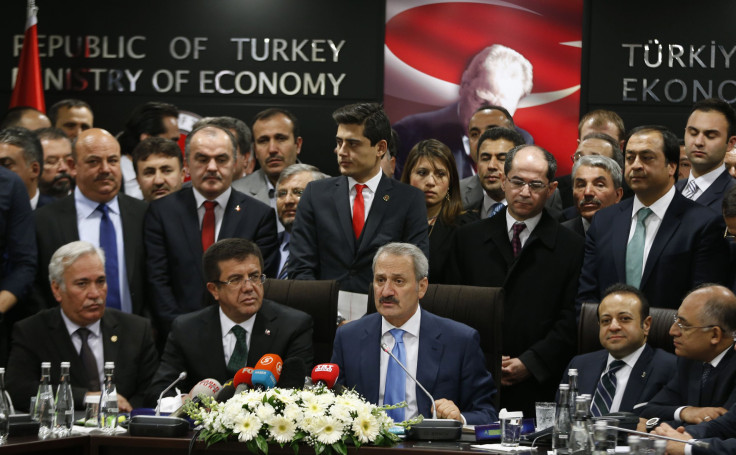Turkish Companies See New Business Opportunities In Iran

Ankara and Tehran may disagree over the Syrian conflict, but the two governments recognize opportunities for increasing trade between their countries in the wake of eased sanctions against Iran -- and that's despite repeated warnings from the U.S.
Since the agreement in January when Western nations eased economic sanctions on Iran in echange for a slowing down of its nuclear program, Turkish companies have looked to their embattled neighbor for deals.
“Since Western powers reached an interim deal with Tehran, new business opportunities began to emerge in Iran,” Bilgin Aygun, vice president of Turkey’s Foreign Economic Relations Board, said last week.
Iran is one of Turkey’s most important trading partners, but sanctions had decreased their trade volume from $21.8 billion in 2012 to $13.5 billion in 2013. Turkey is hoping that the easing of sanctions will open new business opportunities in the energy sector, among others, because Turkey relies heavily on energy imports. Oil-rich Iran, the world's fourth-biggest oil producer, has historically been its main supplier.
Despite Turkish Prime Minister Recep Tayyip Erdoğan’s harsh criticism of Iranian support for beleaguered Syrian President Bashir Al-Assad’s regime, Erdoğan visited Tehran in January and signed a cooperation agreement to form a joint trade committee.
"I hope 2014 will be a milestone year for both countries and that we reach a US$30 billion trade volume by the end of 2015," Erdoğan said.
In response to Turkey’s new economic rapprochement to Iran, David Cohen, the U.S. Undersecretary of the Treasury for terrorism and financial intelligence, said a significant amount of sanctions against Iran still remained in effect, in industries include banking, energy and shipping sanctions.
“Iran is not open for business,” Cohen said in Turkey last month. “Businesses interested in engaging in Iran really should hold off. The day may come when Iran is open for business, but the day is not today.”
On Feb. 11, President Barack Obama echoed that sentiment and said that companies looking to take advantage of the interim agreement “do so at their own peril,” adding that the U.S. would “come down on them like a ton of bricks with respect to the sanctions that we control.” Obama’s comments came shortly after news that a delegation of more than 100 French companies visited Tehran.
The U.S. is troubled by companies doing business in Iran, particularly under-the-table dealings. In December a massive corruption scandal rocked Turkey and exposed a “gas-for-gold” scheme that allowed Tehran to buy gold with the Turkish lira in exchange for Iranian natural gas and oil. Western sanctions over Iran's nuclear program prevented the country from getting paid in euros or dollars.
Between March 2012 and July 2013, Turkey was able to export approximately $13 billion worth of gold to Tehran, according to Mark Dubowitz of the Foundation for Defense of Democracies.
© Copyright IBTimes 2025. All rights reserved.






















